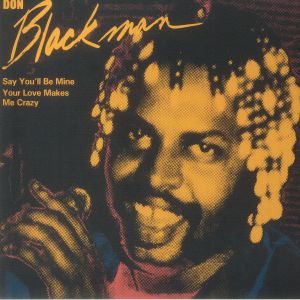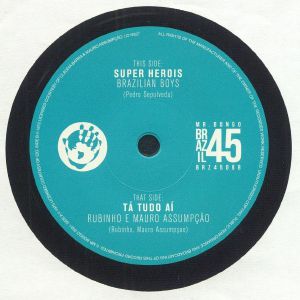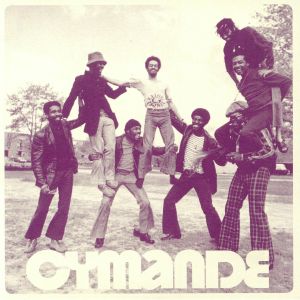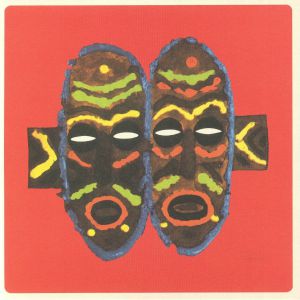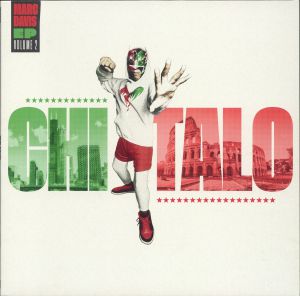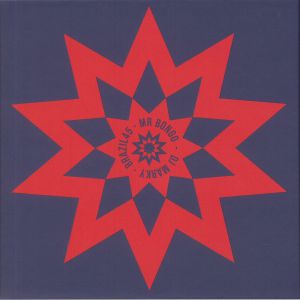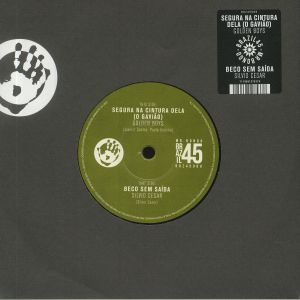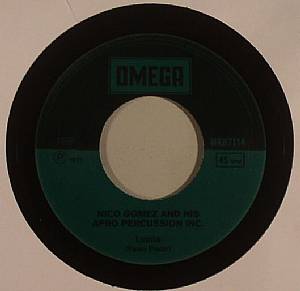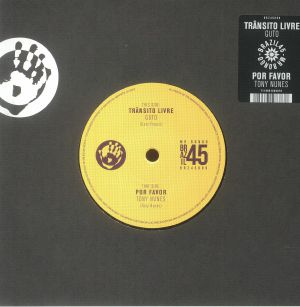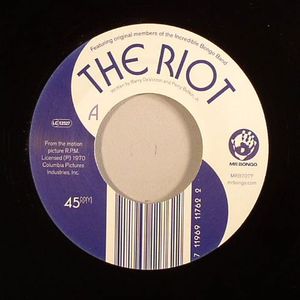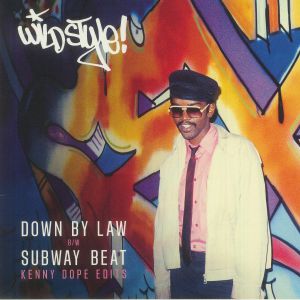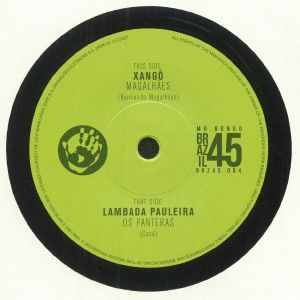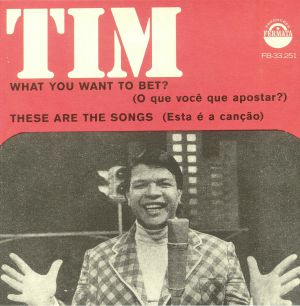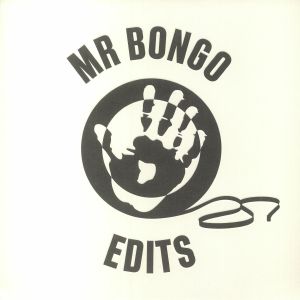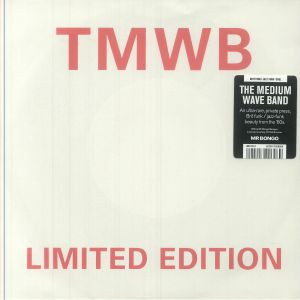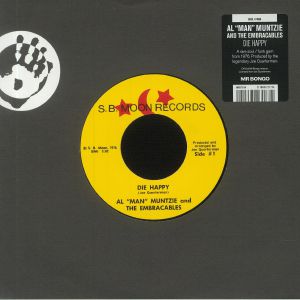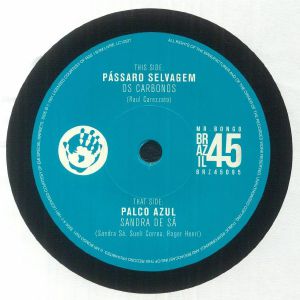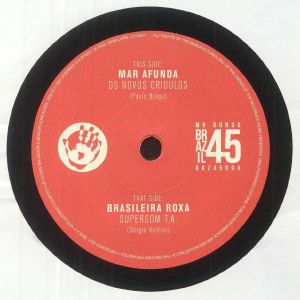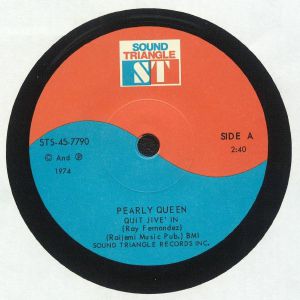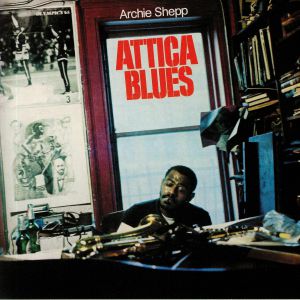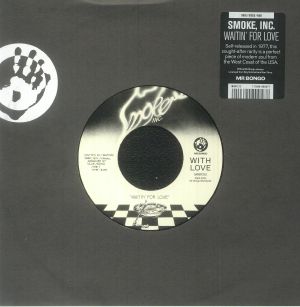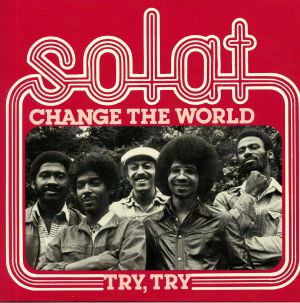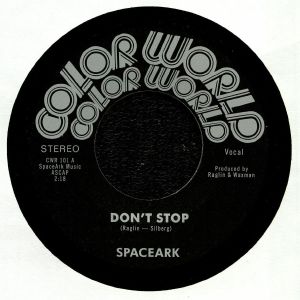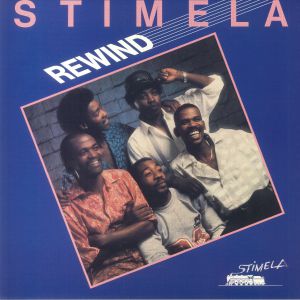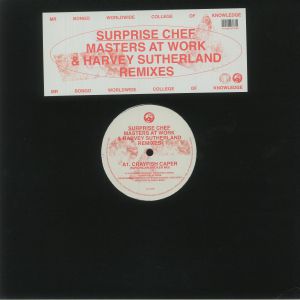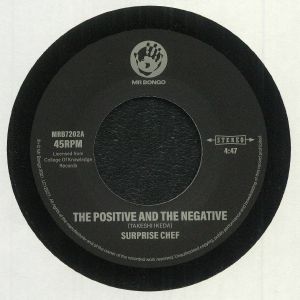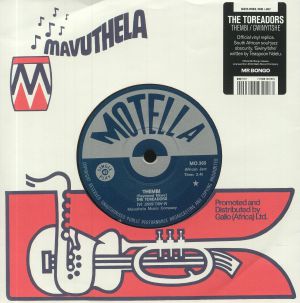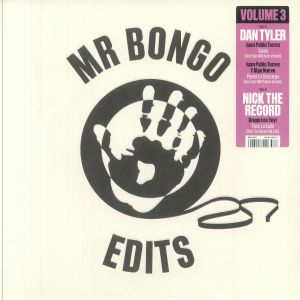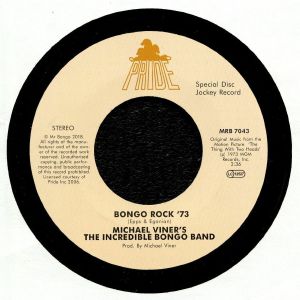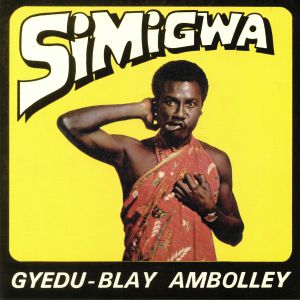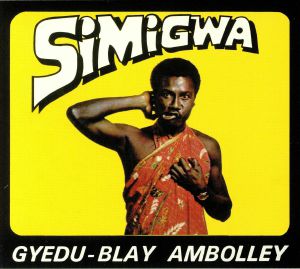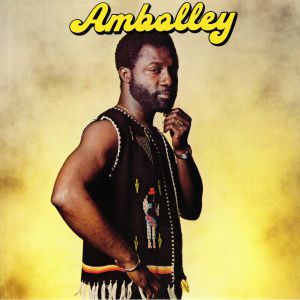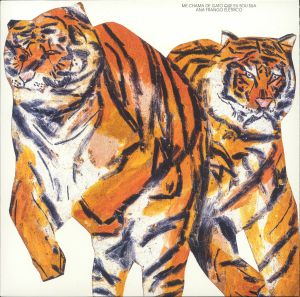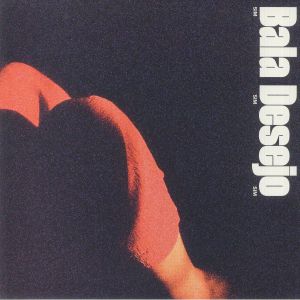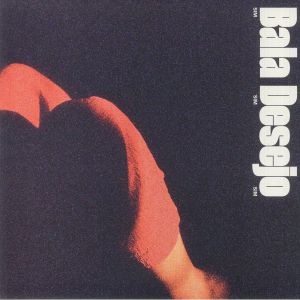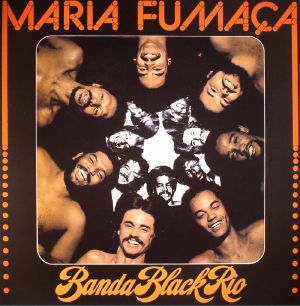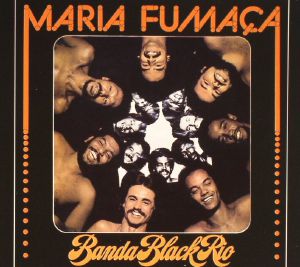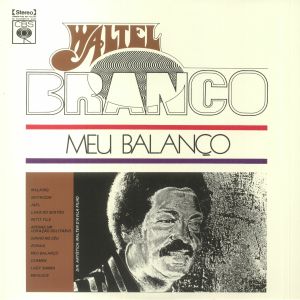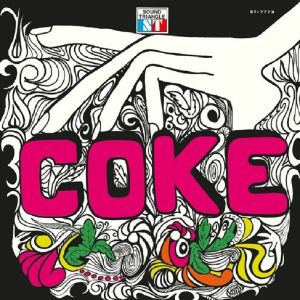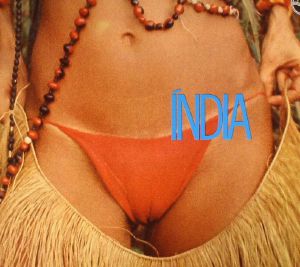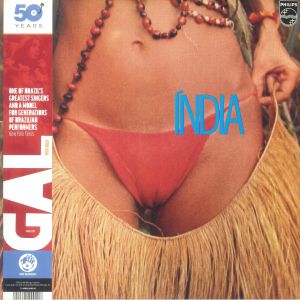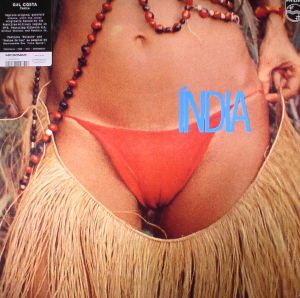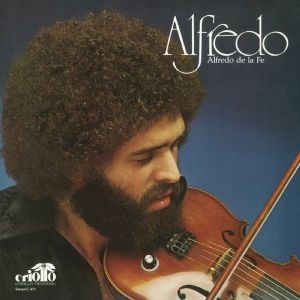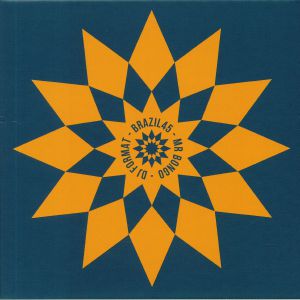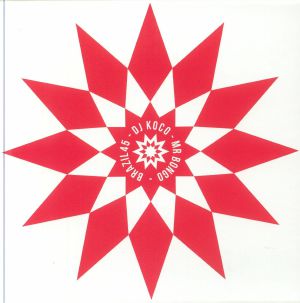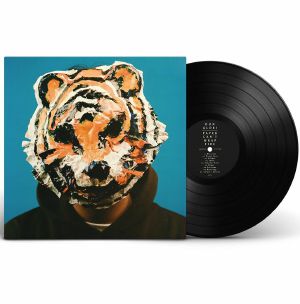Back catalogue: Funk/Reissues
Juno's full catalogue of Funk/Reissues
单曲
Review: A vault of formerly unreleased Don Blackman material recently surfaced via the Chicago DJ/producer/digger Marc Davis, who in recent years struck up a relationship with the children of the mysterious New York pianist and songwriter. Now this wealth of jams finally gets released: 40 years' worth of unheard Blackman - cassettes, CDs, discs, reel-to-reels, paperwork, even VHS tapes - inevitably once more reignites the obsessive fan interest in his music, which sprang from its already-mystical cult status in the rare funk and soul-digging world.
… Read more in stock $16.20
Review: We'll never tire of the incredible Brazil45 series on Mr Bongo, which has provided an authoritative window into the rich history of 60s and 70s grooves from South America. Here's a missing joint from the series which took some time to come to fruition - a split release featuring Brazilian Boys on the A side and Rubinho E Mauro Assumpcao on the B. 'Super Herois' is an obscure slice of off-kilter, psych tinged funk from 1975 that has the kind of individual sound which could find favour with a lot of different DJs. 'Tudo Ai' has a more recognisable samba shuffle, but much like the A side there's a subtle twist in the sound which leans towards blues rock and jazz, locking down on the rhythm and creating a low-key party starter in its own unique way.
… Read morePlayed by: Juno Recommends International
in stock $12.79
Asafo Beesuon Medley (Gruff & Grey edit) (limited 1-sided 7")
Cat: MRB 7113. Rel: 09 May 13
Review: Mr Bongo continue their Classic African series with a trip to late 60s Ghana. Having re-released CK Mann & His Carousel 7's album Funky Highlife late last year, the label have now given their in-house editor (Brighton's Gareth Stephens) the honour of dicing and splicing the 14 minute original. Naturally he's done with punchy aplomb. As a result there's not a dull moment in sight as we switch and sway from swooping harmonic chorus to jaunty organ stabs with undiluted Afrobeat glee. Jump on this now... it's highly limited!
… Read moreout of stock $7.95
Review: In the early '70s, Cymande made a trio of killer albums that remain stone cold classics to this day. For this reissue 7", Mr Bongo has dipped into two of those albums - 1973's Second Time Around and 74's Promised Heights - and dug out two of the best-loved, most-sampled cuts. On the A you'll find "Fug", a low-slung, bassline-driven party full of killer drum breaks, righteous horn solos and, and conscious lyrics that call for global action against inequality (little, it seems, has changed politically since). It's one of those you should really own, as is the ever more familiar flipside "Brothers On The Slide", which boasts one of the most recognizable grooves in the history of dance music.
… Read moreout of stock $10.80
Review: Mr Bongo recently served up a tasty 7" single featuring two of Cymande's best-loved tracks, "Fug" and "Brothers on the Slide". Here they repeat the trick, slapping the two most-played tracks from the British band's incredible 1972 debut album, Cymande, on one "45". The A-side boasts "Bra", a killer chunk of funk/soul/reggae fusion with one of the most recognizable grooves around. Hip-hop heads will know it inside out, since DJs have been doubling up with copies of "Bra" since the mid 1970s. On the flip you'll find "The Message", a sublime, slightly more spaced out reggae-funk workout rich in snaking sax lines, memorable vocals and a groove so distinctive it couldn't come from any other band.
… Read morePlayed by: Scratchandsniff, Mukatsuku Records Chart, JimmyTheTwin, Manu Archeo, RUSTAM OSPANOFF., Craig Charles Funk And Soul, Voodoocuts, Andaloop (Waswotsch), Juno Recommends Funk, JKriv (Razor-N-Tape), I Love 45's!, Ex-Friendly (Truth & Lies Music), LEGO EDIT, Dynamite Cuts, Juno Records Staff Picks
… Read moreout of stock $10.80
Review: Producer, DJ, and revered collector Marc Davis returns to his Chi-Talo series with a much-anticipated second volume. The Chi-Talo series deals in split EPs; each entry draws on an ultra-rare Chicago house gem and an Italian disco record respectively (one for the A and one for the B), re-working both into an enduring dialectal retelling of each city's contemporaneous come-ups in the 1980s and 90s. This time around, we're met with a reconstruction of 'Bass Construction', first heard on the Italo disco album Crazy Colours by New Sound Quartet (1979). Then comes a wonky, handclapping rendition of The Saucer Planes' 'Straight To The Point', the original of which can hardly be found on the net at all, even now. Both are huge but humble versions, marking out the guidelines for yet more editors to come.
… Read more in stock $17.90
Review: Disco Dub Band's "For The Love of Money", a one-off collaboration between producer Davitt Sigerson and reggae musician Mike Dorane, has long been considered something of a classic by those who like their disco to come with a big dose of dub-wise flavour. Here the instrumental O'Jays cover, which originally appeared on the Movers label in 1976, is given the remix treatment by long-time fans Mr Bongo. The superb A-side, in which Dorane's instrumental talents take centre stage, naturally comes accompanied by the frequently played Dub interpretation, a typically wild and bass-heavy affair that sounds like it was mixed "live" in one take in true Lee Perry/King Tubby style. If it's not already in your collection, it should be.
… Read morePlayed by: Scratchandsniff, JOUTRO MUNDO, Mukatsuku Records Chart, Dr Rubberfunk, JimmyTheTwin, The Allergies, Dicky Trisco, Moodena (Tropical Disco Records), Owain Kimber (Owain K), RUSTAM OSPANOFF., Seamus Haji, Voodoocuts, Sol Power All-Stars, I Love Disco!, Summer Carnival Chart, I Love 45's!, Reggae Mash Ups Tha Dance !, Calamity Jade (Willwork4funk), Admin, 45 Live, LEGO EDIT, Dynamite Cuts
… Read more! low stock $10.80
DJ MARKY / VARIOUS
Brazil 45 Boxset Vol 2: Curated By DJ Marky (Record Store Day RSD 2021) (limited 5x7" in spot-varnished box)
Cat: MRB 7173. Rel: 26 Jun 21
Review: Anyone who has heard DJ Marky do one of his "non D&B" sets will know that his love of funk, soul, disco and boogie is real, while there's far more classic Brazilian music in his record collection than some may expect. It makes sense then that he's been asked to provide the follow-up to DJ Format's Brazil 45s box set and pick some vintage carnival-ready gems of his own from Mr Bongo's bulging vaults. There are naturally some stone-cold classics present - see Jorge Ben's floor-slayer 'Take it Easy My Brother Charles' and the boogie-era smoothness of Robson Jorge and Lincoln Olivetta's 'Eva' - but also plenty of lesser-known samba and MPB gems stretched across the five "45s".
… Read moreout of stock $36.65
Cat: BRZ 45089. Rel: 20 Jul 21
Review: Mr Bongo's essential Brazil 45s series notches up release number 89 via a blast of heavy dancefloor pressure that touches on both Brazilian funk and samba-rock. On the A-side you'll find Golden Boys' 1975 gem 'Segura Na Cintura Dela (O Gaviao)', an irresistible slab of full-throttle, orchestra-sporting, Hammond-heavy samba-funk marked out by strong group vocals and some superb musical arrangements. Over on the flip you'll find another classic from the same producer (Milton Miranda), Silvio Cesar's 1971 carnival masterpiece 'Beco Sem Saida' - an infectious excursion that found fame in the 2000s when Drumagick sampled it on 'Sambarock'.
… Read morePlayed by: Fabietto Delgado (Ankle Release)
in stock $12.79
Lupita (7" + free MP3 download code)
Cat: MRB 7114. Rel: 26 Jul 13
Review: Mr Bongo come through with some crucial evidence that Belgium's input into the 1970s Afro Funk and Latin music movements cannot be discounted with this reissue of Nico Gomez And His Afro Percussion Inc. Lupita is actually a seven inch precursor to the forthcoming full reissue of the 1971 LP Ritual from Mr Bongo and presents Gomez, aka Dutch born but Belgium dwelling musician Joseph van het Groenewoud as a master fusionist of the two genres. True Funk heads will immediately recognise "Lupita" as a killer cover of the Perez Prado classic and it's matched by the flipside percussion heavy jam "Baile Chibiquiban".
… Read moreout of stock $9.08
Review: Mr Bongo's authoritative Brazilian 7" series continues apace with this delightful gem, featuring the magical talents of Guto on the A-side and Tony Nunes on the flip. Guto's 'Transito Livre' is a sweet slice of MPB (musica popular brasileira) which switches time signatures with flair from verse to chorus. Tony Nunes turns the heat up with 'Por Favor', a 1973 cut which sounds like it could jump right off the turntable with its fiery, funky urgency. Another essential purchase for all those who love hidden nuggets from Brazil's abundant musical history.
… Read morePlayed by: Voodoocuts
in stock $12.49
Review: The Incredible Bongo Band were a loose studio collective interpreting classics of the day in their own inimitable percussive fashion .They are of course most famous for their ultimate b-boy classic version of "Apache". This particular 7" however features two Incredible Bongo Band cuts that have not previously featured on any albums. "The Riot" is a frenetic drum workout and has been championed by the likes of the Chemical Brothers. "Ohkey Dokey (Part 2)" takes on a somewhat more subdued hue in comparison, but has some dope funky clavinet in the mix. Well worth checking.
… Read more in stock $10.80
Review: You might well have caught wind of Kenny Dope's exhaustive Wild Style Breakbeats box set which came out in 2014. It found the New York legend offering up six 7"s carrying iconic breaks used in seminal hip hop movie Wild Style. Well now you can cop something from that highly sought after box and enjoy it for yourself as the first disc gets its own individual release. On the A side we've got the low slung bass and dusty groove of 'Down By Law', and on the flip it's 'Subway Beat' with a sweet low funk groove. Both should evoke strong memories for anyone versed in the roots of hip hop culture, but regardless they're just kick ass beats you could have a lot fun juggling and blending into other people's music.
… Read more in stock $16.20
Review: The charming 'Xango' by Magalhaes from his 1986 album E Sua Guitarra on Gravasom Records is an electrifying Lambada track with haunting vocals and infectious energy that now gets reissued as part of the superb series from Mr Bongo. It is a guaranteed dancefloor rescuer for DJs worldwide and has in fact been building momentum in recent years. It remains a favourite for its driving rhythm and captivating intensity and on the B-side is 'Lambada Pauleira' by Os Panteras, which was released in 1987 on Gravasom. Known for Joutro Mundo's popular re-edit, this original version stands out with its quirky charm and undeniable appeal and is a staple for renowned Brazilian DJs, including Augusto Olivani (aka Trepanado).
… Read more in stock $11.09
Review: Tim Maia's 1968 debut single, "What You Want To Be", has long been a favourite of dusty-fingered Latin music enthusiasts. Original copies, though, have long been out of the price range of most DJs and collectors. Happily, Mr Bongo has struck a deal to reissue it. The title track is something of a scorching dancefloor-treat - a boogaloo-era slab of Latin funk in which Maia and chums sing in English atop a bustling rhythm track and some seriously heavy horns. B-side "These Are The Songs" is a much more relaxed and laidback, samba-soaked affair, closer in tone to early 1960s U.S soul songs of the sort regularly covered by the Beatles early in the career.
… Read more in stock $10.80
Mr Bongo Edits Volume 1: Danny Krivit (12" in debossed sleeve)
Cat: MRB 12057. Rel: 07 Mar 23
Review: Mr Bongo continue to churn out top-quality re-edits and here they enlist Danny Krivit aka. Mr. K, the New York producer who has longstandingly helped prop up the dance scene there since the early 1960s. Krivit is responsible for perhaps some of the earliest and most significant disco and funk edits on Earth, so we're more than happy to hear these new ones out, in which he lends his ear to two mambi from Latin extraordinaires Sabu Martinez and Nico Gomez. Percussive clanks and boxy slaps abound on this audiophiles' charm.
… Read more in stock $16.20
Review: Medium Wave Band's 'So Tender' is a smooth, late-night jazz slow jam with sultry, soulful vocals that feel oddly familiar. The B-side, 'Games (Instrumental)' delivers a perfect example of Britfunk and UK jazz-funk with a bass-driven groove reminiscent of Elite Records releases. Surprisingly, this 7" was a private press by the band and not released on a label. The lineup featured Elliot Browne, Ron Lyseight, Andrew Proverbs, Tony Peart, Paul Snook, Linton Levy, and the stunning vocals of Jaki Graham, best known for her hit 'Could It Be I'm Falling in Love.' Only 200 copies were pressed, mainly sold in Birmingham, and so this is a cult classic for many and a welcome reissue.
… Read more in stock $15.05
Review: The non stop Mr Bongo crew have another winner on their hands with this reissue of 'Die Happy' originally from 1976. Al "Man" Muntzie And The Embraceable only put out two tunes and this is one of them. It was written by Joe Quarterman with Elliot Adams on bass and after the pair recorded a demo it was taken to Al Muntzie who liked it so much they all went to the studio to record it properly. The tune hits a perfect sweet spot between modern soul, funk, and proto-disco and has a fantastic bassline that really stands out. Flip it over for an instrumental version.
… Read morePlayed by: Juno Recommends Soul
out of stock $16.20
Review: Mr Bongo's crucial Brazil series hits a 94th volume here with vocal and instrumental group Os Carbonos from Sao Paulo. The band had a long and fruitful career that started in the 60s and ran on into the 80s. This offering is a tune from later on in their time and it is a prime slice of Brazilian boogie with funk drums, vamping chords and hip swinging claps all designed to bring the good ties and the sunny vibes. The bass-driven a-side is the one, but the flip from Sandra Sa is a special kind of sentimental soul sound.
… Read morePlayed by: I Love 45's!, Dynamite Cuts
in stock $12.79
Review: Mr Bongo's Brazil45 series continues apace with this 95th entry, which carries two separate sides to keep any Latin-minded DJ very happy indeed. 'Mar Afunda' is a dancefloor delight from Os Novos Crioulos which originally came out on the group's self-titled album on Pirata in 1976. It's shuffling and sublime, sure to get a plethora of ID requests and shimmying moves from the people with their ears tuned in. On the flip we get Supersom TA's 'Brasileira Roxa', a sunny slice of samba fun which originally came out in 1972 and features more cuica flexing than you could ever dream of.
… Read more in stock $12.49
Review: This 7" reissue revives a true funk gem from Miami-based Cuban rock band Pearly Queen. Featuring the infectious 'Quit Jive' In' and a fiery cover of The Rascals' 'Jungle Walk,' this 1974 release on Sound Triangle Records has long been a sought-after rarity. Introduced to collectors by DJs like Keb Darge and Jazzman Gerald, and later immortalised by DJ Shadow in his Brainfreeze mix, the record oozes groove. 'Quit Jive' In,' penned by Ray Fernandez, is a funk powerhouse, while 'Jungle Walk' brings a cinematic rock-funk flair, perfect for a Tarantino soundtrack.
… Read more in stock $14.49
Review: Most experts agree that Archie Shepp's 1972 album "Attica Blues" is one of the finest soul-jazz LPs ever made - a politically-charged affair that just gets better with every listen. This tidy seven-inch single from Mr Bongo offers up two of the album's standout moments. On the A-side you'll find the title track, a swirling, down-low mixture of belted-out female chorus vocals, surging orchestration, Blaxploitation style bottom end and an impassioned lead vocal from Henry Hull. Flipside cut "Quiet Dawn" sees Waheeda Massey take lead vocals over a more obviously jazz-centric backing track rich in wild sax solos from the effervescent Shepp. Like the A-side, it's simply essential.
… Read more in stock $16.47
Review: Smoke Inc are a favourite for soul reissuers and once again they find themselves the subject of a loving repress by the kind folks over at Mr. Bongo. 'Waitin' For Love' remains to be one of their most sought-after songs on wax, flaunting the sweet balladry of the band's brains Roy Schmall and Stanford Terry, and topped off with an ecstatic flute solo. It was originally released on the band's own self-titled imprint, but now it seems destined to transcend its make-do origins; these new, pristine reissues wait avidly for your mitts on 'em.
… Read more in stock $15.05
Review: Briefly active in the late 1970s, Solat was a Dutch funk group made up of musicians from Surinam and the Dutch Antilles. They're undoubtedly best remembered by collectors for their 1977 single "Change The World", original copies of which regularly change hands for hundreds of pounds online. Here it gets the reissue treatment courtesy of Mr Bongo. Rich in crunchy Clavinets, tropical guitars, bold group vocals and a touch of steamy disco flavour, "Change The World" is a genuinely life-affirming affair. "Try, Try" meanwhile is an altogether more bass-heavy affair - a Blaxploitation-era slab of disco-funk reminiscent of Mass Production at their most righteous.
… Read more in stock $14.49
Review: Mr Bongo recently reissued the obscure - but also thoroughly brilliant - 1975 debut album by Los Angles soul/rock fusionists Spaceark. Here they continue to mine the band's slim body of work by offering up a new edition of 1976 single "Don't Stop". Available in vocal and instrumental variations, the track is a wonderfully warm and inviting affair, with sweet male and female vocals rising above a grandiose backing track rich in sustained Hammond organ chords, soaring instrumentation, snaking saxophone solos and an unfussy but tight groove. While the vocal version is undeniably great, there's something extra special about the thrusting solos and urgent backing vocals that surge from the speakers during the Instrumental mix.
… Read moreout of stock $11.09
Review: South African funk outfit Stimela, named after the Zulu word for locomotive, formed out of the ashes of bandleader Ray Phri's previous band, The Cannibals, and soon became an institution in their homeland. Five albums deep in 1986, they also released the astounding Rewind EP, which now gets faithfully reissued by Mr Bongo for a fresh audience. Every track on here is a winner, from the epic, proggy groove of 'I Love You' to the low slung, synth-rich funky angles of 'Shaka Doo Ba'. You won't regret copping this slab of wax, trust us.
… Read more in stock $13.62
Cat: MRB 12054. Rel: 22 Oct 21
Review: Here's a pleasant surprise: a fresh set of remixes of killer cuts from the back catalogue of Melbourne-based band Surprise Chef, whose hard-to-pigeonhole take on cinematic soul contains numerous nods to classic jazz-funk and Brit-funk jams. Masters at Work give their take on 'Crayfish Caper', first joining the dots between Afro-beat, jazz-funk and West London style bruk on the 'Nuyorican Broken' mix, before delivering two house-style revisions - the squelchy, synth-bass-propelled 'Masters at Work Mix' and the tougher, more percussive 'MAW Dub'. The EP's other interpretations come from Harvey Sutherland, whose 'Weird Flex 12" and 'Weird Flex' revisions of 'New Ferrari' add the band's jazz-funk instrumentation and spacey synths to a warming, off-kilter deep house groove.
… Read morePlayed by: Fradinho, Patrick Luca (Island Issues), Rocco Universal, Mark Forshaw, Roual Galloway, Vincent Inc, Replika | Common Mode, Pete Haigh, Sol Power All-Stars, Juno Recommends Funk, Luke Solomon, JKriv (Razor-N-Tape), DJ ROCCA, Charlie bucket/ dancing in space, Miles Away Recs, Stephane Attias, LEGO EDIT
… Read moreout of stock $24.15
Review: Minoru Muraoka is a master of the traditional Japanese bamboo flute known as a shakuhachi. His flair on the instrument combined with his knowledge of breakbeat jazz and Japanese folkloric music results in stunning sounds such as 'The Positive and the Negative' from his 1970 album Bamboo. It has been championed by the likes of DJ Shadow and Cut Chemist so has true cult status. Snap up this reissue to enjoy its original charm, as well as a new reinterpretation of the track by Melbourne's Surprise Chef. The flip the whimsy of the a-side into a more mystic and beat driven jam packed with tropical charm.
… Read moreout of stock $16.20
Review: We'll assume that you've never heard of South African outfit The Toreadors - we hadn't - or their oh-so-slim discography. That's no problem, though, because happily Mr Bongo has rescued their sole seven-inch single, recorded and released in the autumn of 1972, and given it the reissue treatment. It's a genuinely magical record all told, and all the more remarkable given that the band was assembled by producer Ray Nkwe specifically for the session. A-side 'Thembi' is genuinely beautiful and breezy, with group harmony vocals and haunting horn and woodwind solos seemingly drifting above a psychedelia-tinged deep jazz groove. Flipside 'Gwimyitshe' is, if anything, even better, with spiritual soul vocals and a cosmic jazz-funk groove catching the ear. Exceptional!
… Read moreout of stock $15.05
Review: Dan Tyler and Nick The Record's third installment in the Mr Bongo Edits series brings a bold twist to Cuban classics with three tracks that are equal parts cosmic and dancefloor-ready. On the A-side, Tyler extends two Juan Pablo Torres tracks from his reissued 1978 'Algo Nuevo' and 1977's 'Super Son.' First, Tyler reimagines 'Cacao,' a standout track from Torres' LP, giving it room to breathe and intensifying the percussive climax with swirling synths and spacey dub effects. It's a track that thrives on a big system, building tension as it goes, and works wonders in the right environmentijust ask anyone who caught it at La Paloma in Barcelona. Next, Tyler dials into 'Pastel En Descarga,' turning the Latin-funk fusion into a punchy, trippy dub with delay and drama, keeping the track's energy while taking it further into spacey, cosmic territory. On the flip, Nick The Record tackles Grupo Los Yoyi's 1977 'Paco La Calle,' taking a 2009 edit and expanding it into a longer, more hypnotic piece. The percussion pushes and pulls as the psychedelic synths swirl, creating a dynamic and ever-building groove. The 2025 version is elevated with new synth lines courtesy of Tyler, deepening the track's psychedelic richness. A cosmic whirlwind of reworks that bridges the gap between '70s Cuban innovation and modern dancefloor sensibilities.
… Read more in stock $19.88
Review: Two seminal cover versions from the funkiest band who never really existed, Viner's legacy continues to live large through samples and well-dug selections. You already know these percussive puppies inside out, but just in case... "Bongo Rock" takes Preston Epps 12-bar blues classic into deep funk territory, complete with an array of trumpets that nod dutifully at the Beatles circa Sgt Pepper. Meanwhile on the B we find "Apache", one of the most sampled records of all time. The fact it's delivered on the mighty Mr Bongo is also a very nice touch. An essential repress.
… Read moreout of stock $11.09
专辑
Review: 1975's "Simigwa" album not only launched the career of Afro-funk fusionist and eventual Highlife great Gyedu Blay Ambolley, but also inspired a Ghanaian dance craze. The album was co-produced by another Highlife great, Ebo Taylor, and has long been exceptionally hard to find on vinyl. For this official vinyl reissue on Mr Bongo, Ambolley's landmark set has been fully re-mastered for the very first time. It sounds spectacular, with great clarity on the ear-catching brass solos, serious weight to the bass and superb stereo separation. Highlights include - but certainly aren't limited to - the Afro-blues brilliance of "Toffie", the jaunty dancefloor fuzziness of "This Hustling World" and the heavyweight swing of ear-catching opener "Kwaakwaa".
… Read moreout of stock $25.28
Review: 1975's "Simigwa" album not only launched the career of Afro-funk fusionist and eventual Highlife great Gyedu Blay Ambolley, but also inspired a Ghanaian dance craze. The album was co-produced by another Highlife great, Ebo Taylor, and has long been exceptionally hard to find on vinyl. For this official vinyl reissue on Mr Bongo, Ambolley's landmark set has been fully re-mastered for the very first time. It sounds spectacular, with great clarity on the ear-catching brass solos, serious weight to the bass and superb stereo separation. Highlights include - but certainly aren't limited to - the Afro-blues brilliance of "Toffie", the jaunty dancefloor fuzziness of "This Hustling World" and the heavyweight swing of ear-catching opener "Kwaakwaa".
… Read moreout of stock $5.97
Review: Initially released in South Africa in 1982, Gyedu-Blay Ambolley's sophomore set is now regarded as a boogie-era Highlife classic. Here issued on CD for the very first time via Mr Bongo, the album features the Ghanaian star brilliantly joining the dots between driving disco-funk, jazz-funk, intoxicating slow jams, calypso, dub reggae and his beloved highlife. Highlights come thick and fast throughout, with standouts including heavy percussion jam "Simigwa", the boogie-dub skank of "Adwoa", the down-low grooves of "Walking Down The Street" and the killer disco highlife anthem "It's High Life". Simply essential.
… Read more in stock $23.57
Cat: MRBLP 273B. Rel: 22 Mar 24
Review: Mr. Bongo presents the very latest album from Ana Frango Eletrico, one of the most exciting voices to emerge from Brazil's contemporary new wave. With two critically acclaimed albums and a swathe of award-winning production turns already under their belt, Me Chama De Gato Que Eu Sou Sua promises to follow in very much the same wake, a ten-track delight of sophisti-disco productions and nimble, fey vocal performances from Eletrico themselves, this LP explores the depths of queer love and romance via some slick and snappy productions.
… Read moreout of stock $24.72
Sim Sim Sim (reissue) (limited red vinyl LP + insert)
Cat: MRBLP 269R. Rel: 10 May 23
Review: This is a special red vinyl reissue of Bala Desejo's award-winning debut album. Bala Desejo scored big at the Latin Grammys with this one and it finds the Rio de Janeiro band demonstrating their canny blend of 60s tropicalia, 70s psychedelia and MPB throughout. The music is all about bringing pleasure and is full of wistful escapism and aching beauty that comes from the country's rich heritage of good-time grooves and sunny sounds. Spearheading a new wave of music and art from Rio de Janeiro, Bala Desejo mixes up everything you know and love about the music of their homeland with plenty of fresh new ideas.
… Read morePlayed by: Craig Charles Funk And Soul
out of stock $27.26
Review: It's no mean feat to win awards with your debut album, but Bala Desejo did just that when they scored big at the Latin Grammys. As soon as you hit play on Sim Sim Sim you'll understand why, as the Rio de Janeiro band demonstrate their canny blend of 60s tropicalia, 70s psychedelia and MPB. It's pure pleasure music, full of wistful escapism and aching beauty, and in drawing so naturally on the best of Brazilian music culture through the ages, they've made something truly woven into the fabric of their home country. Spearheading a new wave of music and art from Rio de Janeiro, Bala Desejo have everything you could possibly want from a new Brazilian project, and more besides.
… Read morePlayed by: Charlie bucket/ dancing in space
in stock $25.57
Review: Banda Black Rio were and still are an incredibly influential jazz-dance band from Brazil. Their three albums have been in any serious digger's back since then and, more recently, they've seen a renewed interest thanks to iconic British collectors and DJs such as Gilles Peterson and the rest of the London fusion crew. Maria Fumaca's tracks are the perfect balance between funk, jazz and disco, blending all three in one perfect shape for both the dancers and the armchair listeners. Tunes like "Na Baixa Do Sepateiro" focus on drums and hypnotic guitar solos, while others like "Caminho Da Roca" go deeper into the jazz end of the spectrum but still retain enough Brazilian tropical flare to make them an absolute pleasure on the dancefloors. A much recommended reissue, and one that would have cost you a fortune up until now. Mr Bongo in the place.
… Read moreout of stock $24.72
Review: Banda Black Rio were and still are an incredibly influential jazz-dance band from Brazil. Their three albums have been in any serious digger's back since then and, more recently, they've seen a renewed interest thanks to iconic British collectors and DJs such as Gilles Peterson and the rest of the London fusion crew. Maria Fumaca's tracks are the perfect balance between funk, jazz and disco, blending all three in one perfect shape for both the dancers and the armchair listeners. Tunes like "Na Baixa Do Sepateiro" focus on drums and hypnotic guitar solos, while others like "Caminho Da Roca" go deeper into the jazz end of the spectrum but still retain enough Brazilian tropical flare to make them an absolute pleasure on the dancefloors. A much recommended reissue, and one that would have cost you a fortune up until now. Mr Bongo in the place.
… Read moreout of stock $9.65
Review: Mr. Bongo takes us back to the release of Waltel Blanco's jazz-funk masterwork, 'Meu Balanco', first released in 1995. Noted for its accumulation of Blanco's various skills picked up over the course of his years as a session musician in Brazil - for the likes of Marcos Valle and Elis Regina, to name a few - this LP is a rollicking instrumental ride, just as suitable for film soundtracking as it is for home listening. Many-an electric piano, bass lick and buzzing horn cement the vibe of the boom in Latin cinema at the time of its release.
… Read morePlayed by: Juno Recommends Jazz, Galletas Calientes
in stock $22.72
Review: Mr Bongo look back to the damn fine Latin funk and rock-infused soul sounds of Coke's 197 self-titled opus for their next well-chosen reissue project here. It is their only album, sadly, but is a brilliant mix of Miami Latin-funk, psychedelic garage rock and gritty soul sung mainly in English. It blends bright funk drumming, flavourful organs and zesty horn with Paul Garcia (guitar), Ariel Hernandez (bass), Ruben Perez (drums), Jose Rubio (keys) and Peter Fernandez (vocals) all produced by Mato. The record was popular in Miami but faded due to limited promotion and a Coca-Cola trademark dispute but was later rediscovered by collectors, with standout tracks like 'Na Na,' 'Got to Touch Your Face' and 'Te Amo Mas' all became staples of Latin sets.
… Read more in stock $25.85
Review: Last reissued in Brazil over 10 years ago, legendary Brazilian singer Gal Costa's sixth album is a tropicalian odyssey. Reflective, soulful, touching and dynamic, Gal guides us through a sunset story of ballads ("Volta"), bossas ("Milho Verde") blues ("De Maior Importance") and beyond with an all-star troupe of musicians including Gilberto Gil, Arthur Verocai and Dominguinhos. Remastered to a touch and complete with the original cover that was banned by the Brazilian dictatorship at the time, this is the first time India has been reissued with care in decades.
… Read morePlayed by: Craig Charles Funk And Soul
out of stock $10.21
India (50th Anniversary Edition) (half speed remastered) (gatefold LP + fold-out poster + insert with obi-strip)
Cat: MRBLP 282. Rel: 07 Jul 23
Review: Gal Costa is rightly considered one of the leading lights of Brazil's tropicalia scene, not least from her golden period in the late 60s, and the legacy of the late singer lives on with this reissue of one of her finest albums by Mr Bongo. India was Costa's fourth album, originally released in 1973 and instantly courting controversy after the Brazilian military censored the cover due to the shot of Costa's bikini and little else. Of course such imagery is comparatively tame these days, and instead we can focus on the music which is some of the finest MPB and tropicalia you could ever wish to hear, all led by Costa's mesmerising voice and backed by true Brazilian greats including Gilberto Gil.
… Read morePlayed by: Juno Recommends International
out of stock $31.54
Review: Last reissued in Brazil over 10 years ago and last reissued on vinyl over 20 years ago, legendary Brazilian singer Gal Costa's sixth album is a tropicalian odyssey. Reflective, soulful, touching and dynamic, Gal guides us through a sunset story of ballads ("Volta"), bossas ("Milho Verde") blues ("De Maior Importance") and beyond with an all-star troupe of musicians including Gilberto Gil, Arthur Verocai and Dominguinhos. Remastered to a touch and complete with the original cover that was banned by the Brazilian dictatorship at the time, this is the first time India has been reissued with care in decades.
… Read more in stock $25.28
Review: Mr Bongo present a staunch retro vision of Cuban-born violinist Alfredo De La Fe, one of whose sonographic creams was the debut salsa-and-more fusion album, Alfredo. Based between New York and Colombia, Alfredo worked with many of the greats in Latin music, including Eddie Palmieri, Willie Colon and Roberto Roena, as well as disco and soul icons Sylvester and Aquarian Dream. For a debut solo record, Alfredo is a real charm offensive, and a valiant experiment at that, mixing Latin dancefloor crunches with De La Fe's own, unusually additive violin, placed centre stage as he solos. The record - a favourite of legendary New York club The Paradise Garage - tonally shifts past the halfway mark, eschewing the A-side's chroma-jazzy clavier discombobulations for an early four-to-the-floor, daresay proto deep house excursion, 'Hot To Trot'.
… Read more in stock $22.16
DJ FORMAT / VARIOUS
Brazil 45 Boxset: Curated By DJ Format (Record Store Day 2020) (limited 5x7" box set in spot-varnished box)
Cat: MRB 7160. Rel: 14 Sep 20
Review: Here's something to seriously set the pulse racing: a limited-edition quintuple "Brazil 45s" boxset curated by the effervescent DJ Format, and featuring ten tracks unearthed on his most recent crate-digging trip to South America. In keeping with his much-loved style, most of the material can be loosely described as "psyche break-beat", all of which was initially recorded and released in the 1960s and '70s. That means a blend of hallucinatory Brazilian funk and soul rich in sweaty, often densely layered drums, booming basslines, trippy vocals, eccentric production, mazy Hammond organ lines and rousing horns. The quality bar is set so high that picking individual highlights is tough; suffice to say, you need all ten tunes in your life (and in your record box).
… Read moreout of stock $44.60
DJ KOCO / VARIOUS
Brazil 45 Boxset Vol 5: Curated By DJ Koco (Record Store Day RSD 2024) (limited 5x7" box set in spot-varnished box)
Cat: MRB 7219. Rel: 07 May 24
Review: Renowned for his fervent dedication to 7" singles, DJ Koco inherits the Brazil 45 legacy from Mike D of Beastie Boys. Presenting ten beloved Brazilian gems, Koco's box set opens with Famks' boogie brilliance and classic selections from Waltel Branco. Lee Jackson's euphoric rendition of The Doors' 'Light My Fire' and Paulo Diniz's spirited MPB delight shine brightly. Featuring icons like Arthur Verocai and Ed Lincoln, Koco's curation underscores his profound appreciation for Brazil's rich musical tapestry. Further pushing boundaries, Koco delivers two exclusive edits for the box set. A reimagined version of The Boogaloo Combo's 'Boogaloo Combo' amplifies the funky break with masterful finesse. And with exuberance, Koco revitalizes Zito Righi's 1969 Bossa Nova hit 'Poema Ritmico Do Malandro' with a spirited re-edit.
… Read moreout of stock $41.48
Paper Can't Wrap Fire (orange vinyl LP (indie exclusive))
Cat: MRBLP 322O. Rel: 16 May 25
Review: Paper Can't Wrap Fire is the third album from Melbourne/Naarm multi-instrumentalist Don Glori, and it is a rich mix of jazz, soul, funk and R&B, but also marks a bold evolution in the artist's own songwriting. The title is based on a Chinese proverb about truth and underpins reflective tracks like the soulful 'Brown Eyes,' satirical 'Disaster,' and introspective 'Flicker' Recorded in Naarm with friends and past bandmates, these sparkling sounds are brimful of the sort of life-affirming harmonies and dynamic musical interplay that makes you smile broadly, while the heartfelt lyrics make this town mark. Influences from the likes Azymuth, SAULT, and Jordan Rakei are all clear, but Don Glori crafts his own take on those sounds that speaks to both emotion and intellect.
… Read more in stock $27.26
Review: Over the course of two fine, full-length excursions, Don Glori (real name Gordon Li) has perfected a warm, breezy and frequently life-affirming trademark sound that cannily joins the dots between jazz, samba, MPB, jazz-funk and soul. He leans into the latter elements more on summery third set Paper Can't Wrap Fire, drawing on the talents of a wealth of Melbourne music friends across nine sublime tracks. There's much to admire throughout, from the sun-soaked jazz-funk/soul fusion of 'Brown Eyes' and summery head-nodder 'Janet', to the spiritual jazz joy of 'Song For Ants', the Brazilian brilliance of 'Precious' and the oceans-deep nu-jazz shuffle of 'Saturn's Return'.
… Read morePlayed by: Pete Haigh, Juno Recommends Broken Beat Nu Jazz
in stock $15.05
Review: The third album from Melbourne/Naarm multi-instrumentalist Don Glori merges jazz, soul, funk and r&b and marks a confident leap forward in his songwriting journey. Anchored by a Chinese proverb about truth, Paper Can't Wrap Fire explores themes of honesty and introspection across standout tracks like the silky 'Brown Eyes,' the sharp-witted 'Disaster' and the meditative 'Flicker.' It was recorded with close friends and longtime collaborators and radiates warmth, spontaneity and rich musical chemistry. While nodding to influences like Azymuth, SAULT, and Jordan Rakei, Don Glori delivers a sound entirely his own and it is wonderfully intimate.
… Read morePlayed by: Aroop Roy, Juno Recommends Broken Beat Nu Jazz
in stock $23.02

 USD
USD






